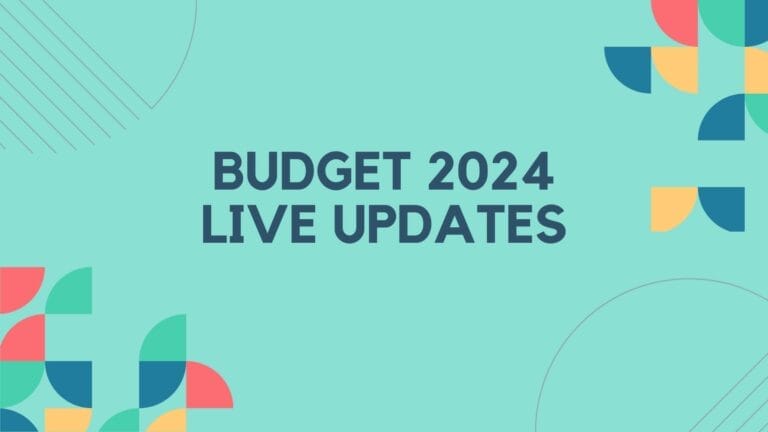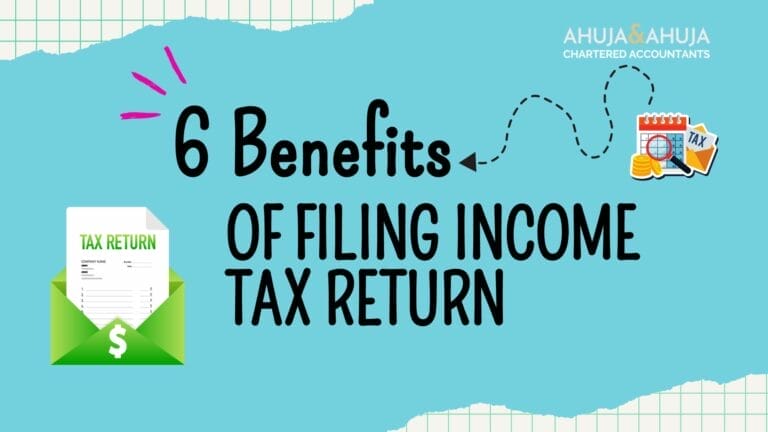A Comprehensive Guide to Navigating Cryptocurrency Taxes in India 2024
Cryptocurrency, an innovation of digital technology, is swiftly ushering in a new era in the financial world.
Defined as a decentralized digital asset and a medium of exchange, it operates on cutting-edge blockchain technology to ensure security and transparency.
India, as an emerging economic power, has taken critical steps to define and regulate the use of cryptocurrency within its borders, recognizing its potential impact on the broader financial landscape.
Understanding Cryptocurrency under Indian Regulations
In 2022, the Indian government laid the groundwork for the legal framework surrounding cryptocurrencies.
The Union Budget of 2022 was a pivotal moment that saw cryptos and non-fungible tokens (NFTs) formally categorized under the umbrella of “Virtual Digital Assets” (VDAs).
This classification has significant tax implications which are critical for every investor to understand. The definition of VDAs extends to any digital representation of value such as cryptocurrencies like
Bitcoin, Ethereum, and various other tokens that can be transferred, stored, or traded electronically.
The distinction between considering crypto as ‘Currency’ versus an ‘Asset’ is profound in the realm of taxation.
As per the guidelines from the 2024 budget, VDAs are treated more as property rather than currency, which brings them into the capital gains tax sphere, unless they’re held for trading purposes, in which case they become subject to business income tax.
Taxation Laws Relevant to Cryptocurrencies in India
With the formal introduction of crypto taxation, understanding the laws is essential. Primarily, these digital assets fall under the new section, Section 115BBH, which articulates that irrespective of the duration these assets are held, the profits from their transactions will incur a flat 30% tax, plus applicable surcharge and cess.
Additionally, Section 194S demands a 1% Tax Deducted at Source (TDS) on transactions over a certain threshold, further emphasizing the need for compliance.
To better manage these new reporting requirements, the Income Tax Return forms for the financial year 2022-23 included a dedicated section called Schedule VDA.
This new section aims to streamline the process, ensuring transparency and ease for investors to declare their income from these digital assets.
Key Updates and Regulatory Changes
The inclusion of Schedule VDA in tax forms represents a significant adaptation to accommodate the evolving nature of investments and assets (learn more about these and other tax services here).
It’s clear that the Indian government is making strides to not only regulate but also integrate these modern assets into the formal economy.
This move is expected to lead to increased declarations of such assets, prompted by the clarity provided by the new regulations and the simplicity of the reporting process.
The changes also align with global trends where governments are working to harness the benefits of this technology while mitigating risks such as tax evasion and money laundering.
It is also critical for investors to understand the specific tax implications based on the nature of their crypto transactions.
Whether held as an investment or for trading purposes, the classification can significantly impact the way taxes are calculated and reported, which can be further understood through detailed income tax litigation services.
Investors are encouraged to leverage available tools and professional advice to better navigate this complex landscape.
Understanding the importance of timely and accurate tax filing, which carries its own set of benefits, is crucial (see the benefits here).
As we delve deeper in subsequent sections into the specifics of various taxable transactions, tax deductions, and how to effectively manage and report cryptocurrency taxes, the groundwork laid here will aid every investor, from novices to seasoned professionals, to harness the innovative potential of cryptocurrencies while staying within the legal framework established by Indian authorities.
Detailed Overview of Taxable Crypto Transactions
Cryptocurrencies, once a fringe financial phenomenon, have now permeated the mainstream market with a broad spectrum of transactional purposes.
Depending on how they are used, transactions may attract different tax implications:
- Purchasing Goods and Services: When cryptocurrencies are used to buy goods or services, it is considered a disposal of an asset, and therefore, liable to capital gains tax.
- Trading and Exchanges: Switching one cryptocurrency for another, or trading crypto for fiat currency (like the Indian Rupee), often invokes capital gains tax on any profits derived from the difference in the acquisition cost and the sale price.
- Earnings through Mining and Staking: These methods of acquiring cryptocurrencies involve significant computational efforts and resource investment. The income generated through mining and staking is taxable as per the standard rate of 30% under the income from other sources.
- Cryptocurrency Gifts and Airdrops: Crypto received as gifts from non-relatives valued over Rs 50,000, or through airdrops, is taxable under “income from other sources.” The tax is calculated based on the fair market value of the crypto at the time of receipt.
How to Calculate Tax on Crypto
Calculating taxes on cryptocurrency can be complicated, especially when multiple transactions across various platforms are involved.
However, the basic formula is straightforward:
[ {Taxable Income} = {Sale Price} – {Cost Price} ]
- Sale Price: The amount received from the sale of the cryptocurrency.
- Cost Price: The cost of acquisition, which includes the purchase price and any allowed expenses directly associated with the acquisition.
Example:
If you bought Bitcoin for Rs 300,000 and sold it for Rs 500,000, your taxable income would be Rs 200,000. Given the flat tax rate of 30% on crypto gains:
[ {Tax Payable} = 0.30 \times 200,000 = Rs 60,000 ]
Crypto Bookkeeping and Tax Reporting
Proper bookkeeping is essential for anyone regularly transacting in cryptocurrencies, especially with the complicated web of taxes associated with different types of transactions.
Crypto bookkeeping software can help reconcile public ledger transactions with private records accurately.
These tools automate the recognition and categorization of complex transactions, simplifying the process of tax reporting significantly.
When it comes to reporting, the Indian tax forms now include the ‘Schedule VDA’ specifically for this purpose.
Reporting under this section requires detailed logs of each transaction, which is where robust bookkeeping plays a crucial role.
Investors should maintain thorough records including dates of transactions, amounts in INR, the value of the crypto at the time of the transaction, and the purpose of the transaction, to substantiate their tax filings accurately and avoid potential legal complexities.
Tax Deducted at Source (TDS) on Cryptocurrency Transactions
Understanding TDS in the context of cryptocurrency trading and transactions is crucial as it represents the government’s approach to regulate and tax such activities effectively.
Starting from July 1, 2022, under Section 194S, a TDS of 1% is mandated to be deducted by the person responsible for paying any sum towards the transfer of Virtual Digital Assets (VDAs).
Key Aspects of TDS on Crypto Transactions:
- Threshold Limits: TDS of 1% is applicable when the transaction amount exceeds 50,000 for specified persons and 10,000 for others annually.
- Responsibility for Deduction: The buyer of the crypto asset is tasked with deducting TDS before making the payment to the seller. This applies to all modes of trading, including through exchanges or peer-to-peer (P2P) transactions.
- Precautions in P2P Transactions: In peer-to-peer dealings, where an exchange is not facilitating the transaction, the buyer needs to ensure that TDS compliance is accurately met and duly reported through forms like 26QE.
- Crypto-to-Crypto Transactions: When trading one cryptocurrency for another, both parties face the imposition of TDS, making compliance monitoring essential for active traders.
Special Tax Considerations
Mining, Staking, and Forging:
- Mining: Income from mining activities is recognized under ‘Income from other sources’ and taxed at a flat rate of 30%. However, it should be noted that costs associated with mining operations, such as electricity and infrastructure, are not deductible.
- Staking and Forging: Profits derived from staking or forging are also taxed at 30%. For stakers, it’s important to report any crypto income received as a result of these activities under the same rate.
Tax on Airdrops:
- Airdrop Earnings: Tokens received through airdrops are considered a form of income and are taxed at 30% based on their market value at the time of receipt. If these tokens are later sold, swapped, or spent, the market value at the time of the airdrop serves as the cost basis for calculating any capital gains.
Losses and Expense Claims in Cryptocurrency
Current regulations specify that losses incurred from cryptocurrency transactions cannot be set off against any other income, including gains from other cryptocurrency deals.
This limitation means that each crypto asset must be treated as a separate investment for tax purposes. Moreover, no expenses related to the transactional processes of cryptos, except the cost of acquisition, are deductible.
Disclosure Requirements and Compliance
The legal framework around cryptocurrency in India is gradually tightening, with specific disclosure requirements formulated for companies, demanding a detailed inclusion of cryptocurrency dealings in their financial statements.
Individual traders are also required to declare their crypto holdings and transactions comprehensively to ensure transparency and adherence to legal standards.
The mandatory disclosure norms are helping pave the way for a more regulated cryptocurrency environment in India.
Conclusion: Navigating the Complex Landscape of Cryptocurrency Taxation
Cryptocurrency taxation in India is a complex and dynamically evolving area. Understanding the intricacies of tax implications can significantly impact investment decisions and financial planning.
As the regulatory landscape continues to develop, staying informed and compliant is crucial. Professionals in the field, such as financial advisors and tax consultants, play a vital role in guiding investors through these complexities, ensuring that all obligations are met while maximizing financial potential within the legal framework of India’s tax regulations.
Adhering to the comprehensive guidelines outlined in this discussion will equip investors with the necessary knowledge to navigate through their cryptocurrency transactions efficiently, ensuring compliance and strategic optimization of their investments.
Disclaimer
The materials provided herein are solely for educational and informational purposes. No attorney/professional-client relationship is created when you access or use the site or the materials. The information presented on this site does not constitute legal or professional advice and should not be relied upon for such purposes or used as a substitute for professional or legal advice.





